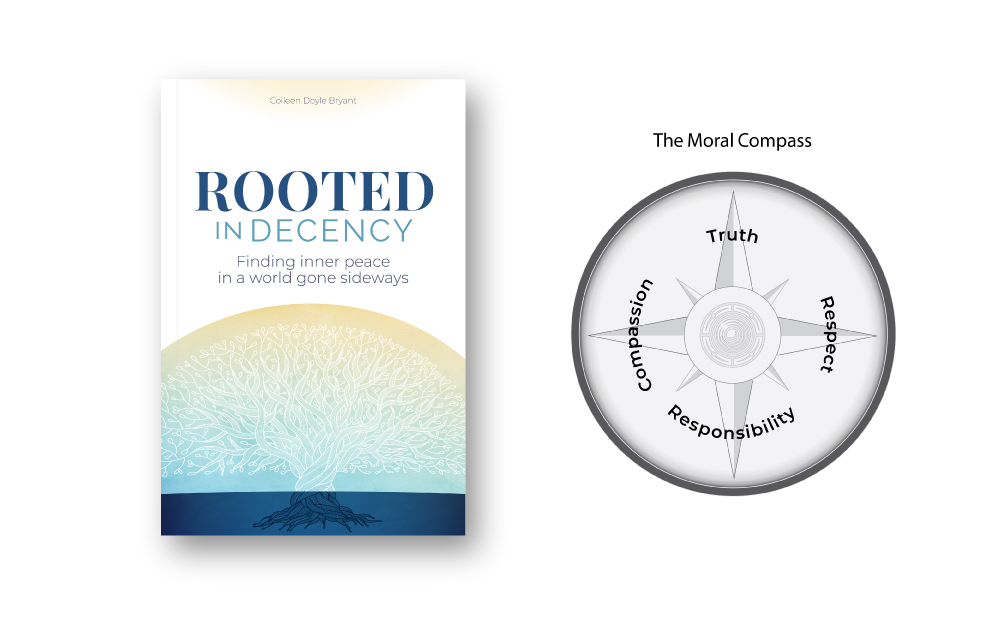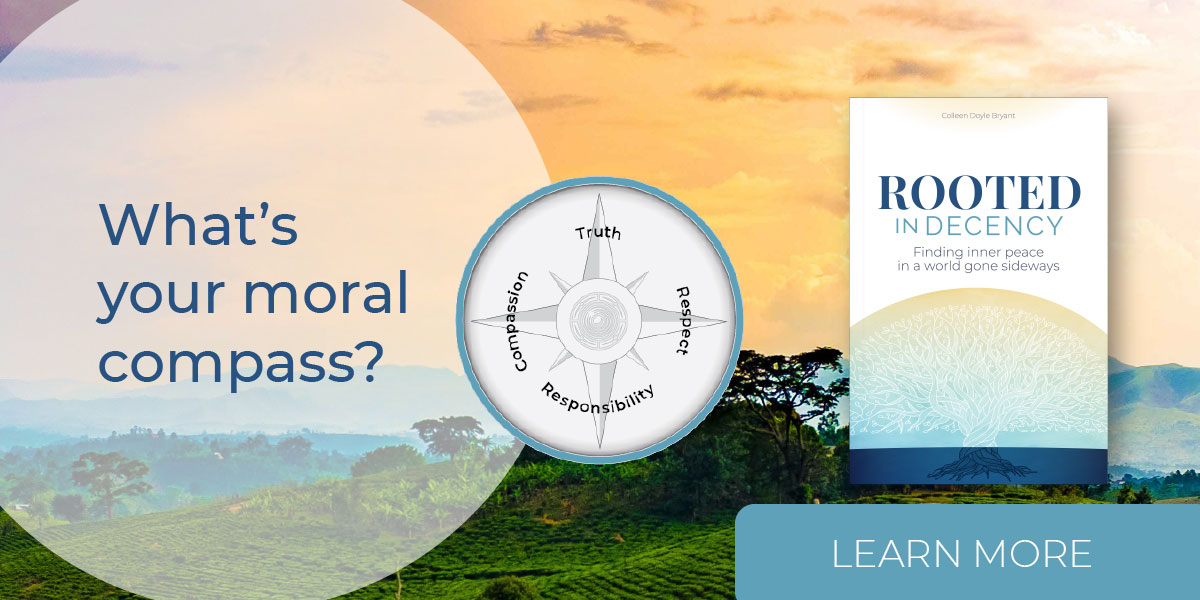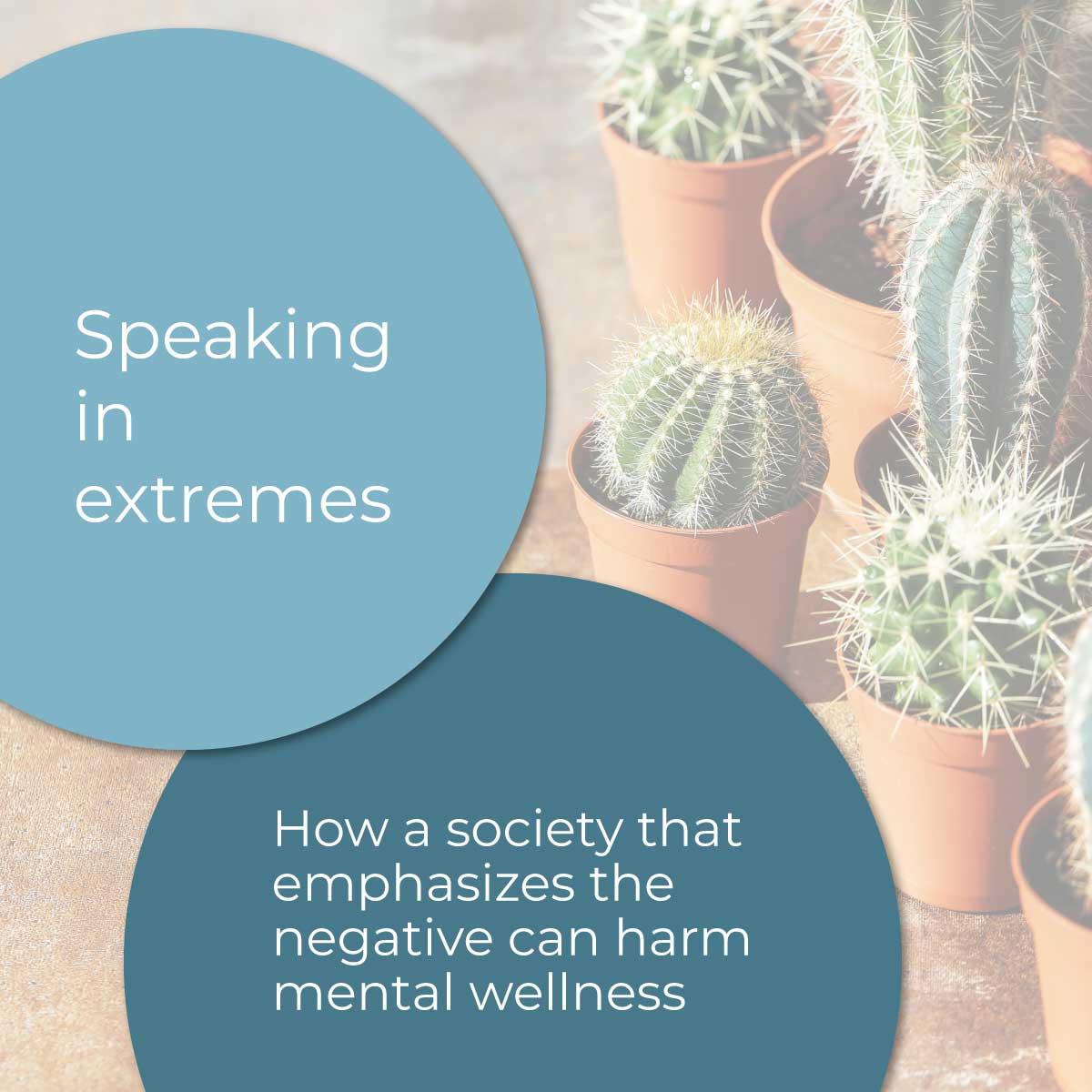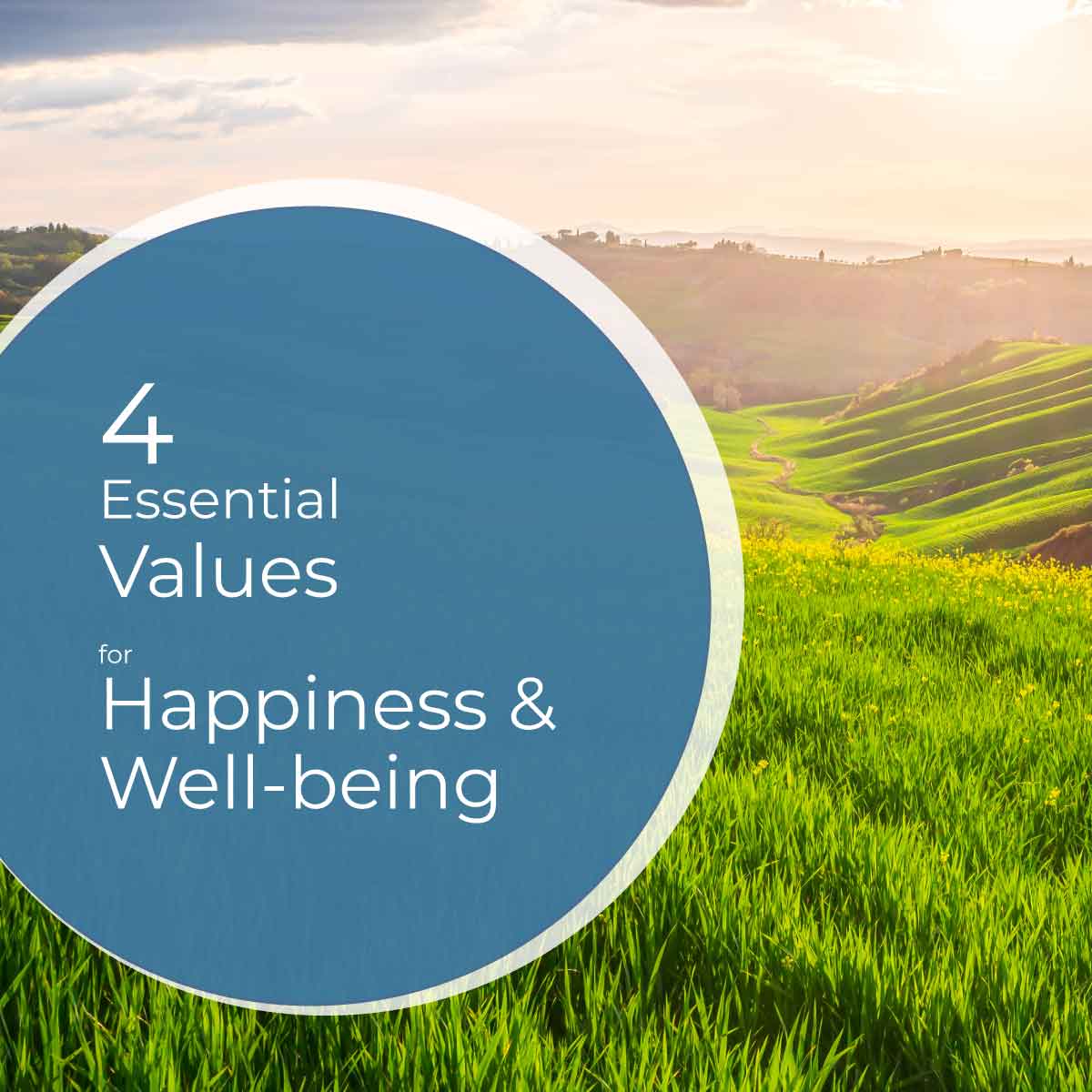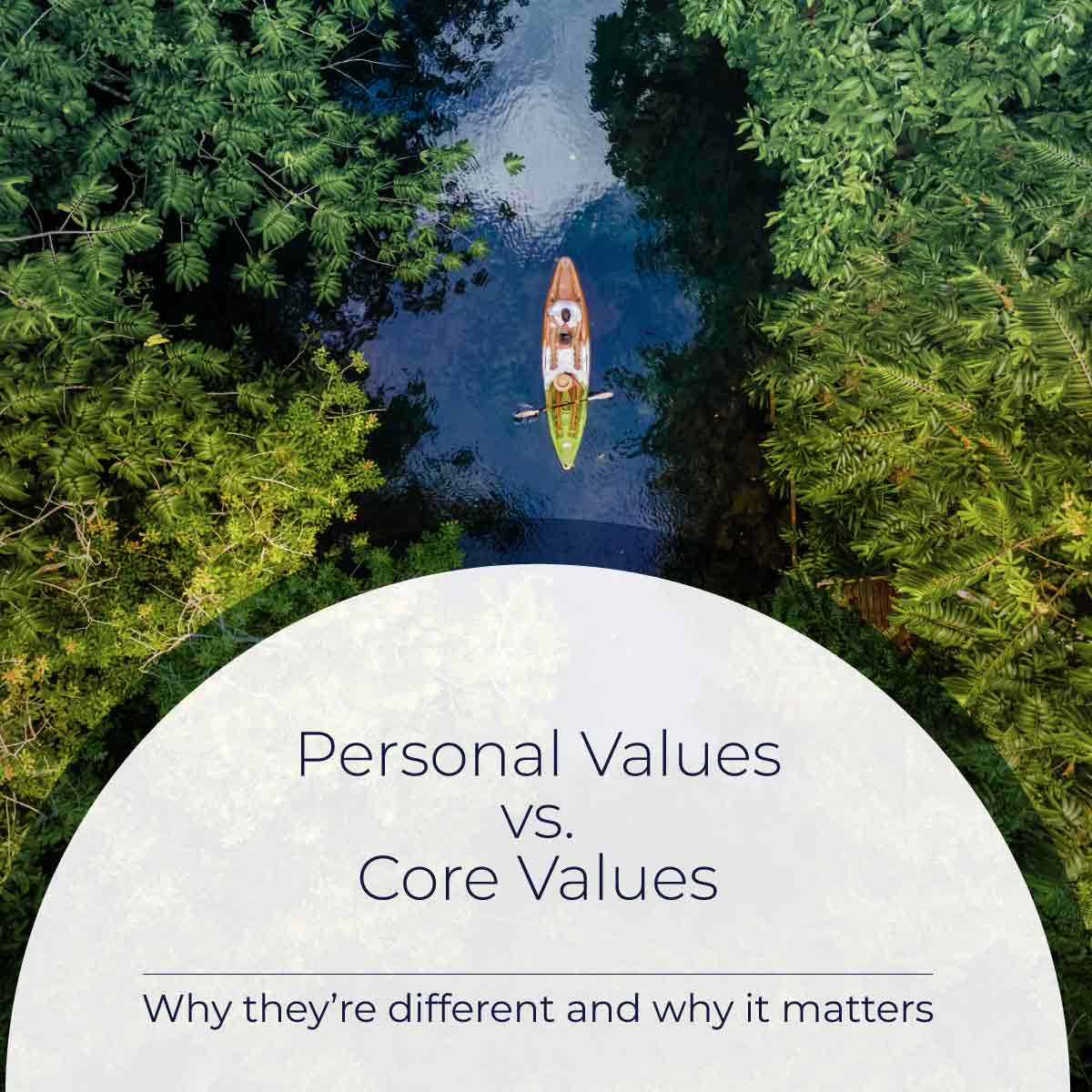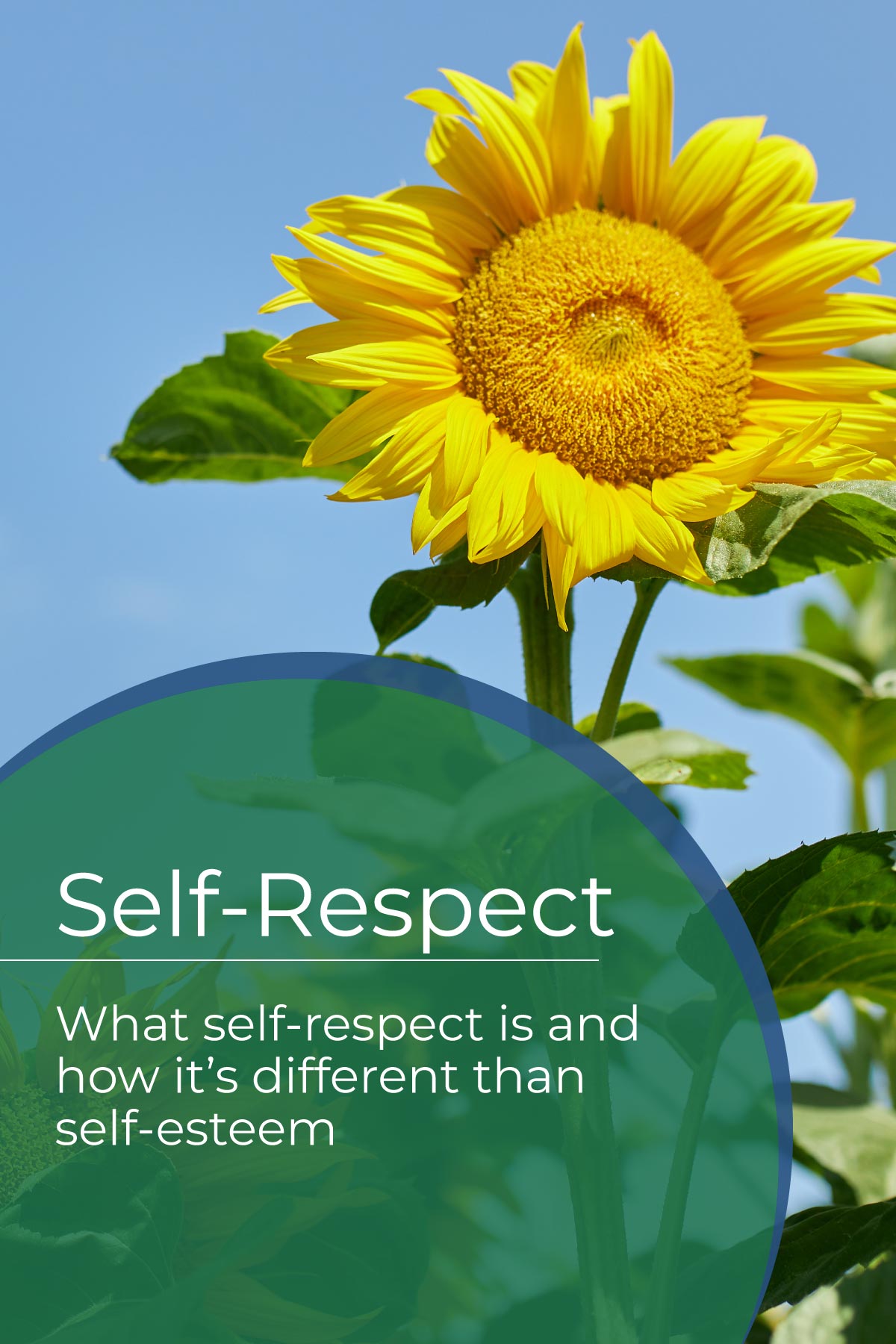
As we talk about mental health today, you may be wondering, what’s the difference between self-respect and self-esteem? Why would I want one more than the other? How do I build more self-respect?
I’m glad you asked, because self-respect is a powerful force for feeling a steady sense of peace, no matter how the world is raging around you. Building self-respect is one of the ways we can create more personal wellbeing even when life seems uncertain.
Why is self-respect so powerful? Because self-respect is an internal sense of our own worth that we create for ourselves. Unlike self-esteem (more on that in a minute), self-respect can’t be given to you by someone else, and it can’t be taken away by them either. Self-respect doesn’t come from material things, beauty, or empty accomplishments. Self-respect is about behavior—we build self-respect by seeing the way we have treated ourselves and others in life.
Self-respect has some important advantages over self-esteem. Researchers have shown that people take comfort in their self-respect, even when things don’t go their way. Research also shows that the way we create lasting happiness and find inner peace is, in part, through developing self-respect. So let’s get into this and see what self-respect is and how to create more of it.
A Definition of Self-Respect
Self-respect is a positive, internal sense of one's own worth as a person. It comes from looking at the evidence of one's own actions and knowing we lived in a way we can be proud of.
This definition may seem a little surprising because self-respect isn’t about accomplishments, status, or any number of other end-states. Rather, self-respect is about our behavior. It’s about how we’ve gone about living our lives, how we’ve treated ourselves, and how we’ve treated others. Let’s use a quick example to help this make more sense.
What self-respect is, and is not

Lots of people want wealth, beauty, and fame and they may want to be like someone who has those things. So, does that mean you automatically respect someone who is rich, famous, and beautiful? What if they achieved their wealth and fame by cheating customers, abusing workers, and destroying the community? What if they’re beautiful on the outside but a complete jerk in how they treat people? On the contrary, what if they achieved their success by being honest, treating their workers well, and giving back to their community? What if they are beautiful and also they are kind?
This quick example reveals an important insight about the difference between respect and envy. We may want to have what someone else has achieved (envy), but we only respect them if they’ve gone about achieving those things in a way that is good. Respect doesn’t come from accomplishments themselves; it comes from the way people act as they go about earning those accomplishments.
Self-respect works the same way. Self-respect doesn’t come from what we look like and what we have, it comes from how we live. When we can look at the evidence of our actions and the consequences we create, we can see the ways we have treated ourselves well and the ways we have positively impacted others.
Self-respect comes from
1) knowing that we make choices that we can be proud of, because they are aligned with our core values
2) knowing that people value our contribution and want to be connected with us (because we are a good person to be around.)
Examples of actions that build self-respect
Self-respect comes from knowing we act with core human values in balance, including honesty, respect, responsibility, and compassion. Here are some examples of actions that might build someone's self-respect:
- Earning our success honestly, without harming others or acting against our own values.
- Calming ourselves and speaking to someone with care, even when we're angry.
- Persevering to achieve a challenging goal, even when we want to quit.
- Taking time to help a friend in need.
- Owning up to our mistakes and trying to make them right.
Self-respect or self-esteem?
One way to understand self-respect is by comparing it to self-esteem. Dictionaries may explain them similarly where they define self-esteem as having a positive view of oneself. But since the self-esteem revolution in parenting and teaching styles of the 1980s and 1990s, the meanings of self-respect and self-esteem have become different.
 A quick bit of background: research during the 1970s indicated that people who felt good about themselves did better in life. So, during the 1980s and ‘90s, American society focused on helping kids build self-esteem, which meant they tried to help kids feel good about themselves. Parents, teachers, and coaches praised kids constantly and avoided criticizing, even at the expense of the child having a realistic view of their behavior. Building good self-esteem came to mean only feel good about oneself, and avoiding ever feeling bad. (For more background on the self-esteem movement, and how this social shift didn’t turn out as well as researchers hoped, see Rooted in Decency, Chapter 5 Self-respect vs Self-esteem.)
A quick bit of background: research during the 1970s indicated that people who felt good about themselves did better in life. So, during the 1980s and ‘90s, American society focused on helping kids build self-esteem, which meant they tried to help kids feel good about themselves. Parents, teachers, and coaches praised kids constantly and avoided criticizing, even at the expense of the child having a realistic view of their behavior. Building good self-esteem came to mean only feel good about oneself, and avoiding ever feeling bad. (For more background on the self-esteem movement, and how this social shift didn’t turn out as well as researchers hoped, see Rooted in Decency, Chapter 5 Self-respect vs Self-esteem.)
Today, when we’re talking about self-esteem, it often has a general meaning that someone feels good about themselves. Self-esteem has become something that comes from outside oneself and one’s own behavior. People can praise someone to build their self-esteem, and someone can criticize to take self-esteem away. And self-esteem isn’t necessarily based on any real measure of someone’s worth. For example, someone may have high self-esteem (feel good about themselves) because they have a lot of followers on social media. Yet we saw in the example above that people may envy someone with a lot of followers, but they don’t necessarily respect them. And if they got their followers in an immoral way, there's a good chance people won't even envy that person.
This external version of self-esteem that isn't based on any real sense of values means people can even feel excessively good about themselves while they treat other people terribly (see narcissism). So today, self-esteem and self-respect no longer mean the same thing.
Self-esteem came to mean only feeling good about yourself, and avoiding ever feeling bad about your choices.
Why self-respect is better than self-esteem
In the real world, no one feels perfectly good about themselves all the time. We all make mistakes, and that’s a good thing because it’s how we learn and grow. It’s actually this learning and growing process that helps us develop self-respect.
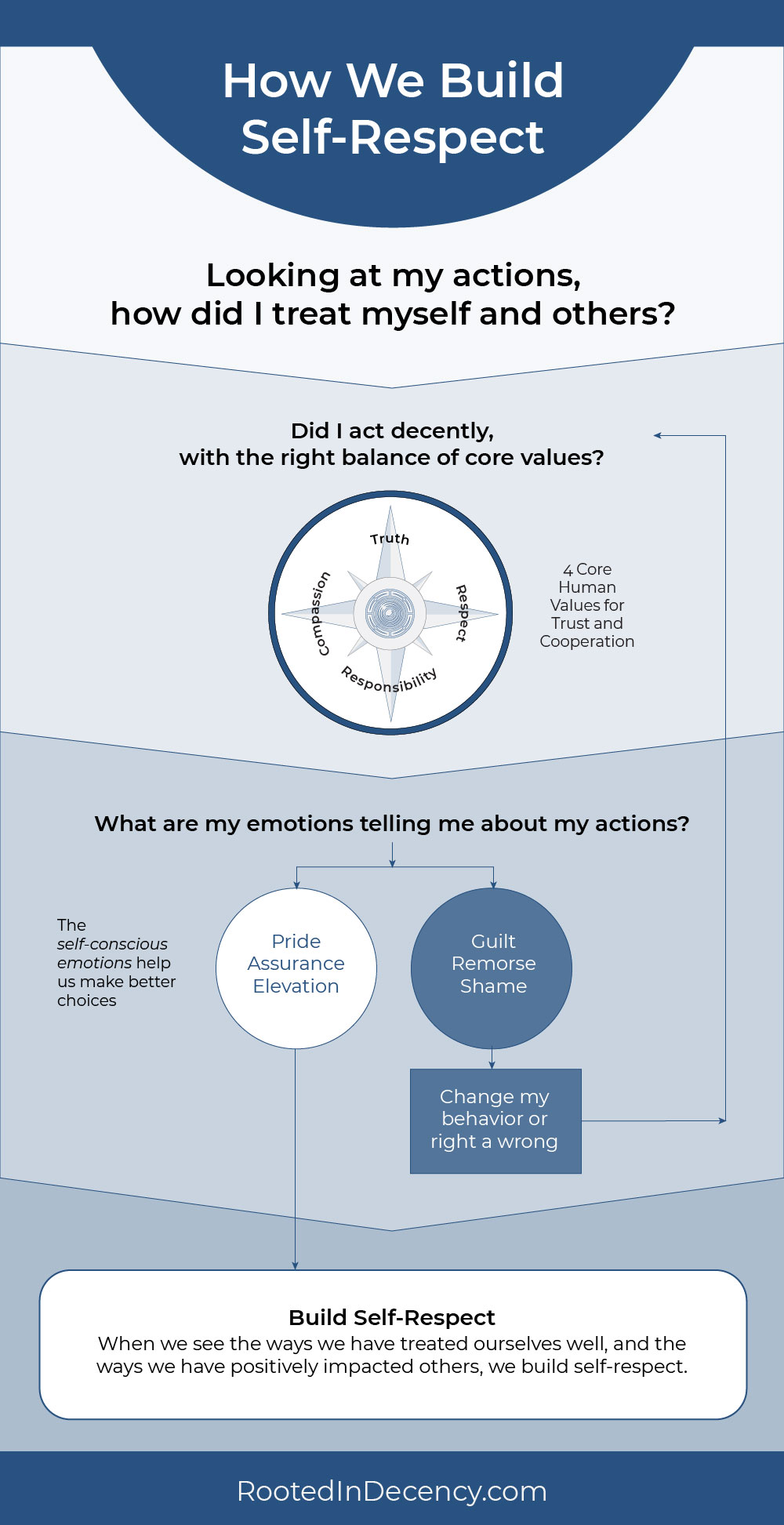
Here’s how it works: when we’ve done something we aren’t proud of we might feel some self-conscious emotions like guilt, embarrassment, remorse, or even shame. Those self-conscious emotions are unpleasant for us to feel, so they encourage us to make choices that keep us from having to experience them. I mean think about it, does anyone enjoy being riddled with guilt? When we're tempted to do something we oughtn't do, the thought of feeling guilt, shame, embarrassment, or remorse later can help us make a healthier choice now. And when we've already made the mistake and are feeling bad about it, the unpleasant feelings those self-conscious emotions carry prompt us to right the wrong so that we can feel better.
So where does self-respect come in? We build self-respect by acting in a way that aligns with what we think is right. Self-respect means we can be proud of ourselves for how we have treated ourselves and others, in the easy times and the hard times. And in those moments when we haven't made the good choice and we aren't proud of ourselves, self-respect drives us to choose differently. We can take new actions that create new outcomes that set us on a path to recovering a positive sense of who we are. This is how we recover from the sad, disappointed, and embarrassing moments of our lives. Going through this process is important for our mental well-being because it gives us a way to rebuild a positive sense of our self and helps us move through unpleasant emotions.
Differences between self-respect and self-esteem
Values-based or arbitrary: Self-respect is a positive sense someone has of their own worth that's based on evidence that they've acted with good values. Self-esteem (in the way we talk about it commonly today) is when someone feels good about themselves, often based on arbitrary criteria and other people's input.
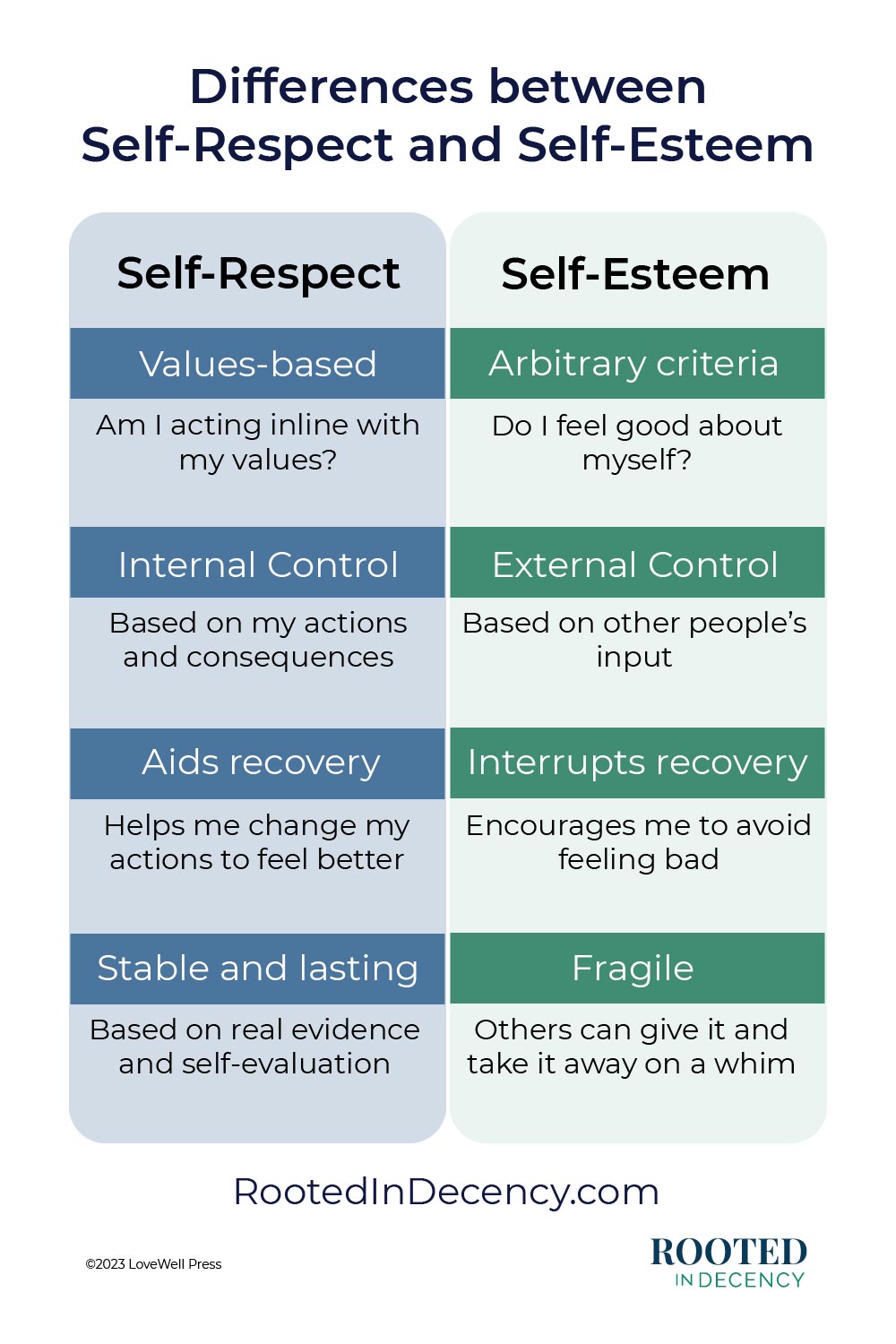
External or internal control: Today's version of self-esteem is often based on external praise and approval which puts our sense of self-worth outside of our control. Self-respect is based on our own values and real evidence so it puts our self-worth within our own control.
Recovery from negative feelings: Today's version of self-esteem focuses on feeling good while avoiding feeling bad, which may interrupt our ability to recover when we're not proud of ourselves. On the other hand, self-respect helps us recover after mistakes by using honest self-awareness to prompt us to change what we're doing so we can set ourselves on a path to feeling good again.
Fragile or lasting: Self-esteem is more fragile because it can be given and taken away. Self-respect is more stable and lasting. It helps us find comfort in having behaved with dignity and good values no matter what happens around us.
3 Tips for Building Self-respect
1. Be honest with yourself, about yourself
The first step to building self-respect is to be honest with yourself. Take a realistic look at the way you’ve treated yourself and others. On the plus side, you’ll probably see some examples of times you’ve made choices that are inline with what you think is right (See the core values shared by humanity.) You can be proud of the moments you acted with honesty, respect, responsibility, and compassion and can bask in some good vibes. Then, consider moments when you acted in a way that you felt guilt, embarrassment, or shame and decide what you can do differently. By being honest with yourself, you can create the opportunities to take new actions and create different feelings for yourself.
A quick, but important note: sometimes people see themselves in an overly negative way. If you're having trouble finding the good, you might read this article on how exaggerating negatives can harm our mental wellness with some insights about how to be more fair with yourself.
2. Take personal responsibility

Every day we have abundant opportunities to choose how we treat ourselves and others. That means we have tons of opportunities to act in a way that builds self-respect. When we take personal responsibility for our actions, we give ourselves the chance to create more outcomes that we can be proud of. Sure, that means we have to take ownership of our actions and can’t blame others. And it means we need to do the hard work to change some things we’re doing that we aren’t proud of. But the payoff is huge. This self-awareness—that we control our actions and can create outcomes—is how we build self-respect and it’s also how we build our sense of agency. The knowledge that we have control over our own lives has tremendous, positive effects on mental wellbeing. (For more on this, see Rooted in Decency.)
3. Base self-respect on your moral compass
We’ve seen that self-esteem is often driven by whether other people offer their praise and approval. But what criteria are they basing their approval on? In contrast, self-respect is based on what you value. It comes from making choices that are inline with your moral compass so you know you are treating yourself and others well. At the end of the day, you have to look in the mirror at the person you are and the way you’ve acted. So shouldn’t your criteria for evaluating yourself be based on something more meaningful to you?
Self-respect is something you earn for yourself. It’s based on real evidence of how you’ve treated yourself and others—and that means other people can’t flick it away with a thoughtless comment. When you’re feeling bad, look to your self-respect for real proof about who you are and how you treat people. Many of the things people base self-esteem on are empty accomplishments or attributes. Real, lasting pride and happiness come from knowing you have acted inline with your values, treating yourself and others with care and dignity. And by the way, if you aren’t finding the evidence you want when you reflect on your own actions, right now is a great time to make different choices. You can start building new evidence that you can be proud of. The power to be who you want to be is in your control.
Explore more
Rooted in Decency can help you explore self-respect and the ways it helps people improve mental wellness and create a lasting stability even when the world around them is chaotic.
